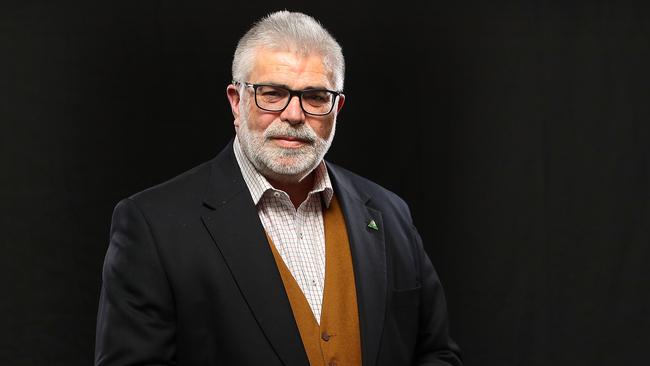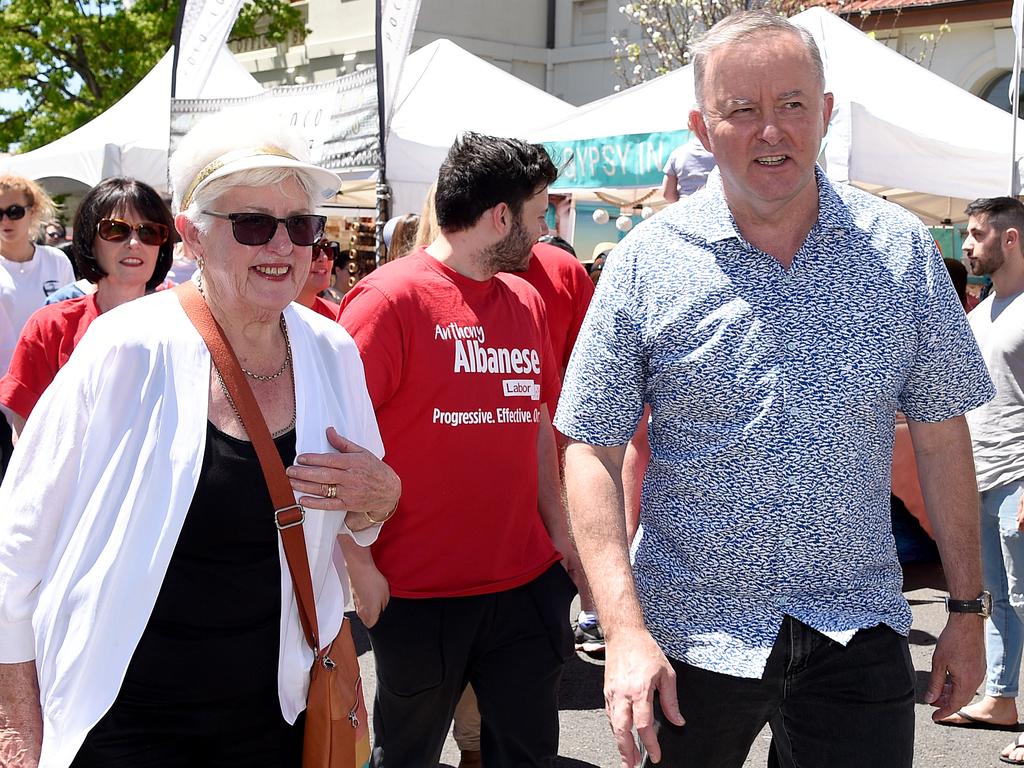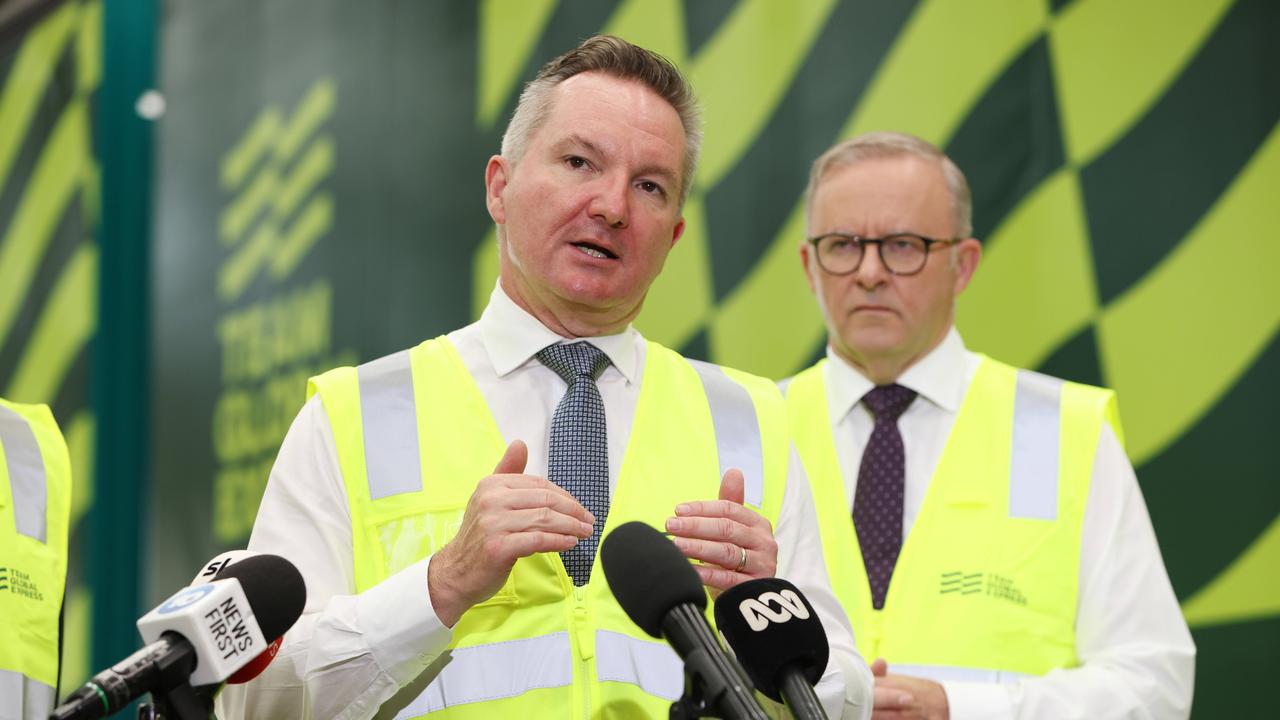We were right to go left: Labor warrior Kim Carr
Kim Carr hits back at right-wing MPs pushing for the party to embrace the political centre.

Labor senator Kim Carr has hit back at right-wing MPs who are pushing for the party to embrace the political centre, declaring Bill Shorten took the right mix of policies to the May 18 election.
The veteran Victorian Left figure said the “world has moved on” from the Hawke-Keating era and warned “trying to be a poor man’s Tony Blair is not going to be the answer for the Labor Party”.
When challenged whether working-class and regional voters were turned off by Labor’s election policies, Senator Carr said: “That is not true. Labor’s policy framework was sound, it was our messaging that was off key.”
READ MORE: Working class woes for Labor | ALP denied Shorten’s campaign cry for help | Bramston: ALP should have left Albanese on the shelf
The Senate’s longest-serving member, who angered Left faction colleagues by helping secure Bill Shorten the Labor leadership ahead of Anthony Albanese following the 2013 election defeat, said social democratic parties “around the world” were suffering because they embraced “third way” politics and neo-liberalism.
“Paul Keating himself has said that their model has outlived its usefulness. He has made the point that neo-liberalism is dead,” Senator Carr told The Australian.
“That approach has outlived its usefulness and is no longer applicable given the enormous reaction there has been to globalism in Europe and advanced capitalist countries. Labor needs to be clear about what it stands for and social democratic parties around the world are facing similar problems, but adopting a Blairite approach or a blue Labor approach has proved unsuccessful in Europe and America.”
Senator Carr said there was a “worthwhile debate” in Labor about its future but pushed back against calls for an overhaul of policies from Treasury spokesman Jim Chalmers, deputy leader Richard Marles and resources spokesman Joel Fitzgibbon.
The three senior right-wing MPs have called for Labor to re-embrace the market-based economics of Bob Hawke and Paul Keating. Senator Carr, who argued against Mr Albanese’s support for free-trade deals with Hong Kong and Indonesia, said Mr Shorten’s tax and industrial relations policies were not the reason working-class and regional voters turned off Labor. He said Labor turned off its traditional voters because of its messaging and embrace of identity politics.
“It is clearly a problem about the messaging, about the way in which we talk to people,” he said.
“Clearly the Labor Party has failed to develop a clear and overarching narrative. Rather, the party relied on appealing to selected groups or narrow interests, on the basis of identity politics.”
Responding to coverage in The Australian ahead of the release of Getting the Blues: the Future of Australian Labor, written by Nick Dyrenfurth, the executive director of the right-aligned John Curtin Research Centre, ALP frontbenchers on Monday avoided calls for the party to adopt “working-class quotas” but supported a “diverse mix” of MPs.
On Sunday, former Queensland Labor minister Robert Schwarten said ALP strategists had failed in connecting with regional voters and their idea of reaching out to coalmining communities was sending Senator Carr up in a “three-piece suit in the middle of summer”.
Resources Minister Matt Canavan, who led the successful Liberal National Party campaign through central and north Queensland, accused Labor of adopting a “David Attenborough approach” to politics in regional electorates. “They come up and view people like coalminers in their natural habitat … amazed by exotic things like the dogs, and something called an RSL, and cars with more than four cylinders. It’s like a different universe to them, a new episode of Planet Earth — Central Queensland edition,” Senator Canavan told The Australian.
Mr Marles said Labor had failed to connect with coalmining communities and “high-vis” working-class voters. “May 18 was a disaster by any estimation and we are going through a process of thinking about where the party is at and we’ve got a review which is coming down in the next couple of weeks,” Mr Marles said.
The defence spokesman said Labor needed to better emulate Mr Hawke in prosecuting arguments and make the case for a “better Australia”.
Mr Chalmers, who was chief of staff to former treasurer Wayne Swan, defended frontbench colleagues who worked for unions and politicians, suggesting there was a “caricature which is sometimes drawn of the Labor Party which is not entirely accurate”.
“I don’t think you should be disqualified from serving in politics if you’ve been to university or you’ve worked for a union representing working people getting them fair pay and conditions. Or indeed if you’ve worked on economic policy. But you need a mix of backgrounds. We have that in the Labor Party,” Mr Chalmers said.
Mr Chalmers, who is launching Dr Dyrenfurth’s book in Melbourne on Thursday, defended Labor’s diversity and said Mr Albanese was a “housing commission kid” who had “never forgotten where he came from”.
“I’m a kid from Logan City – I will never forget where I came from,” he said.
Mr Fitzgibbon said Labor needed “to stick to its core business” instead of pursuing identity politics.
The Hunter MP said Labor must demonstrate it is a progressive party while at the same time “looking after its traditional blue-collar base” and suggested discussion about a working-class quota was beneficial in highlighting the need to win more regional and rural seats at the next election.
“I don’t believe we need quotas. What we need is to win more rural and regional seats. When you win more rural and regional seats you have more rural and regional people sitting around the decision-making table,’’ Mr Fitzgibbon told the ABC. “I don’t like the suggestion that because someone has been a trade union official or worked in politics they’re not well-credentialled to be an effective advocate in the parliament.’’




To join the conversation, please log in. Don't have an account? Register
Join the conversation, you are commenting as Logout